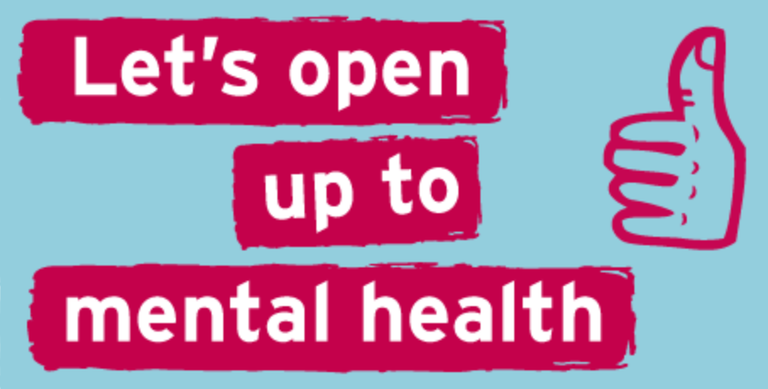Understanding mental health and well-being
Mental health issues can be as debilitating as physical health issues. Speaking from personal experience, I have suffered from both in my life. While physical health issues are a serious problem, at least there are tangible reasons as to why your physical health has deteriorated and in most scenarios can be overcome. On the other hand, mental health issues are real issues and sometimes we do not know the root of the cause. Psychology can sometimes be defined as a science where we poke a stick in the dark, hoping and praying that we find the root of the problem. It is not backed up by by tangible data that can be measured. Therefore, it is very difficult dealing with serious mental health issues. They are real and they should be taken seriously.

Stigma in mental health and how it affects us
Stigma is when someone views you in a negative way because you have a distinguishing characteristic or personal trait that's thought to be, or actually is, a disadvantage (a negative stereotype). This can lead to discrimination in many different aspects in our lives. People can discriminate when it comes to job-hunting, normal day to day interactions and it leaves us with a huge disadvantage. Discrimination can be blatant or it can be covert and unintentional. People view individuals with mental health issues as unstable, volatile, and dangerous to themselves or others. When in reality, we are all normal human beings deep down seeking connection and approval. However, some of us need more help to reach our highest potential. This can lead to harmful effects including and not limited to a reluctance in seeking help or treatment. It leads to isolation from those dearest to us such as our family members, friends and significant others. As mentioned above, it leads to fewer job opportunities. To top it all off, and what ticks me off the most, is that health insurance does not cover mental illness treatment adequately. It may pay for certain medications to keep people stable, but things such as behavioural therapy or counselling is shunned upon in the health insurance business.

Everything is about coping and improving in the face of adversity
How do we cope with such scrutiny and naivety? How do we cope when the odds seem against us and all we need is a helping hand? Below are some ways that I think could be adopted that increase the chances of persevering against Stigmatization.
- Do not isolate yourself - I recommend reaching out to be people you trust. Reach out to the people that you know will show compassion and will offer a helping hand. It is important to be able to vent and release all the negative energy. This is a term in psychology known as catharsis. So I encourage you to find your niche and remember you are neither alone in this world nor are you the only one suffering from mental health issues.
- Treatment - Similarly, you may be reluctant to get treatment because of the stigma or you may not want to face the reality of having to deal with a mental health problem. The first step to recovery, is admitting that we have a problem and then tackling it by getting professional help. I think that counselling and therapy can give us great insight into what is wrong or at least start gearing us towards what is wrong. Sometimes all we need is some guidance in the right direction.
- Do not let the stigma overcome you or identify you - Remember that others may start the stigma but it doesn't always mean that they are 100% responsible for it. If we allow them to label us a certain and make us feel a certain way then we have succumbed to what they want us to be. On the contrary, know yourself and your value. Each and everyone of us is a valuable member of society that plays a vital role. Do not think that mental health issues is a sign of weakness and that we cannot control it without help. We all have problems, and we all have to learn how to cope with it. Remember that!

Some final words
Remember that others evaluate us mainly based on ignorance and lack of understanding of the situation. Sometimes they have malicious intents, and other times they are just ignorant. Some of them may have not yet faced a real mental health issue because life has not thrown them a curve ball yet. But you know what, that is okay! Speak out against it and educate them, let them know how you feel on a daily basis. Learning how to deal with your condition is crucial in the healing process and getting the support you need is essential.
Much love from me, and if anyone needs any advice on anything please feel free to message me! I am a 4th year medical student pursuing my residency in psychiatry and would love to help!
You got a 13.29% upvote from @minnowvotes courtesy of @elfakiym!
You got a 1.86% upvote from @postpromoter courtesy of @elfakiym!
Want to promote your posts too? Check out the Steem Bot Tracker websitevote for @yabapmatt for witness! for more info. If you would like to support the development of @postpromoter and the bot tracker please
Thank you elfakiym for making a transfer to me for an upvote of 6.36% on this post!
funds growth projects for Steem like our top 25 posts on Steem!Half of your bid goes to @budgets which
The other half helps holders of Steem power earn about 60% APR on a delegation to me!
For help, will you please visit https://jerrybanfield.com/contact/ because I check my discord server daily?
To learn more about Steem, will you please use http://steem.guide/ because this URL forwards to my most recently updated complete Steem tutorial?